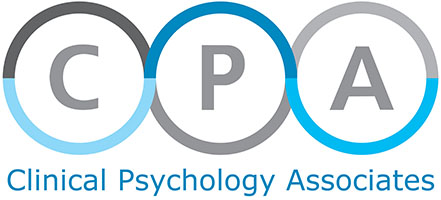Gift-giving activates regions of the brain associated with pleasure, social connection, and trust, creating a “warm glow” effect
The holiday season is upon us, and with it, the hunt for the perfect gifts for family and friends. But what exactly happens in your brain when you give a gift? And is the old saying really true, that “giving is better than receiving?”
Turns out, gift-giving, particularly when the giftee is someone with whom we have a close relationship, activates key reward pathways in our brain, provided we don’t let stress take away the joy of the occasion, according to Emiliana Simon-Thomas, PhD, science director at the Greater Good Science Center, a research center at the University of California, Berkeley, that studies the roots of compassion, happiness, and altruism.
Several studies over the last decade have demonstrated that spending money on someone other than yourself promotes happiness. That’s because when we behave generously—be it donating money to charity or giving a loved one something they really want for a holiday—it creates more interaction between the parts of the brain associated with processing social information and feeling pleasure. In one study led by investigators at the University of Zurich in Switzerland, for example, researchers gave 50 people $100, and instructed half of them to spend it on themselves, and the other half to spend it on someone else over the next four weeks. Then, they performed functional magnetic resonance imaging (fMRI) to measure activity in the brain associated with generosity and pleasure during a social sharing task. They found that those who spent money on other people had more generous and fair interactions with other people and reported higher levels of happiness after the experiment was over.
“Oftentimes, people refer to it as the ‘warm glow,’ this intrinsic delight in doing something for someone else,” said Simon-Thomas, who studies the neuroscience and psychology of compassion, kindness, and gratitude. “But part of the uniqueness of the reward activation around gift-giving compared to something like receiving an award or winning money is that because it is social it also activates pathways in the brain that release oxytocin, which is a neuropeptide that signals trust, safety, and connection. It’s often referred to as the ‘cuddle hormone.’”
When oxytocin is part of the equation, the reward is slightly different in that it can be sustained longer, unlike the brief lifespan that a pure dopamine response has. These effects on the brain are even present during various steps leading up to the actual opening of the gift, such as shopping for the gift and wrapping it, said Simon-Thomas, whose organization is focused on offering research-backed tools and tips for social-emotional well-being. The whole experience of figuring out what to get for someone you love and simply anticipating being in the room with them while they open it activates those same reward pathways and is all part of the joy of gift-giving, she said.
Is it really better to give than receive?
The decades-long science around gift-giving suggests that giving and receiving may be pretty on par in terms of what happens in the brain, Simon-Thomas said.
“If you’re given a gift from someone who cares about you a lot and you really love what they have gotten you, that is going to yield a very similar oxytocin-laden reward response,” she said.
Still, while gift-giving and gift-receiving can often lead to hopefulness and excitement, the lead up to giving a gift can bring on other emotions, including stress and anxiety, said Scott Rick, PhD, an associate professor of marketing at the University of Michigan’s Ross School of Business. Rick is known for developing the tightwad/spendthrift scale, which found that there are real brain and behavioral differences between tightwads and spendthrifts and that they’re related to an emotional experience called “the pain of paying.”
“When it goes right it can be a wonderful thing, but can also come with a lot of anxiety over how much you’re spending or whether or not they will like the gift,” Rick said. There’s also the dreaded experience of being in a position where you receive a gift from someone you were not expecting to, and don’t have a gift of your own to reciprocate.
“If we’re in that awkward situation where we feel obligated and that we failed to deliver an equitable or fair scenario, you might expect to see a response in the brain sort of like the psychological dimension of pain—the kind of activation that signals distress and worry, as opposed to the sensation of physical harm when we get hurt,” said Simon-Thomas.
Reframe it
Gift-giving can also be seen as just one more thing on your to-do list during a very busy time, which can take much of the joy out of the gift-giving experience, Simon-Thomas said.
“If you are really stressed that is overwhelming your ability to anticipate or savor the experience, then dopamine and oxytocin aren’t what’s being released in your brain,” she said. “You’re probably just feeling stressed the whole time.”
If this is the case, she added, it’s important to take time to shift your mindset. If the financial aspect of gift-giving has you stressed, set expectations with family and friends upfront that you may not have the resources to get them something they really want this year. You can also consider giving the gift of your time to help with babysitting or a project with which they might need assistance, or plan something to do together instead.
“A good gift involves some sacrifice—money, time, or both,” Rick said. “It shows that you understand and know the person and can surprise them.”
Published Dec 9, 2022 American Psychological Association: What happens in your brain when you give a gift?

